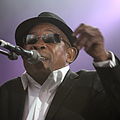
Soukous is a genre of dance music originating from the Democratic Republic of the Congo and the Republic of the Congo. It derived from Congolese rumba in the 1960s, with faster dance rhythms and bright, intricate guitar improvisation, and gained popularity in the 1980s in France. Although often used by journalists as a synonym for Congolese rumba, both the music and dance associated with soukous differ from more traditional rumba, especially in its higher tempo and longer dance sequences.

The United Nations Organization Stabilization Mission in the Democratic Republic of the Congo or MONUSCO, an acronym based on its French name Mission de l'Organisation des Nations Unies pour la stabilisation en République démocratique du Congo, is a United Nations peacekeeping force in the Democratic Republic of the Congo (DRC) which was established by the United Nations Security Council in resolutions 1279 (1999) and 1291 (2000) to monitor the peace process of the Second Congo War, though much of its focus subsequently turned to the Ituri conflict, the Kivu conflict and the Dongo conflict. The mission was known as the United Nations Mission in the Democratic Republic of Congo or MONUC, an acronym of its French name Mission de l'Organisation des Nations Unies en République démocratique du Congo, until 2010.
Crammed Discs is an independent record label whose output blends world music, rock, pop, and electronica. Based in Brussels, Belgium, Crammed was founded in 1980 by Marc Hollander of Aksak Maboul and has since released around 400 albums and 300 singles, working with artists from all over the world.

Antoine Christophe Agbepa Mumba, known professionally as Koffi Olomidé, is a Congolese singer-songwriter, dancer, producer, and the founder of Quartier Latin International. Often referred to as the "King of Ndombolo," he is noted for his explosive high notes, deep baritone, and offbeat voice. Agbepa is considered one of the most significant figures in 20th-century Congolese and African popular music. His lyrics often explore themes of love, politics, technology, success, infidelity, religion, chicanery, and disillusionment. Through his stage performances, he introduced the slower style of the soukous known as Tcha Tcho and popularized a flamboyant fashion subculture called La Sape alongside Papa Wemba.
Aksak Maboul are a Belgian avant-rock band founded in 1977 by Marc Hollander with Vincent Kenis, and now revolving around Hollander and Véronique Vincent. Aksak Maboul hasn't stopped changing shape and form throughout its existence, exploring diverse musical styles with their own aesthetic approach.
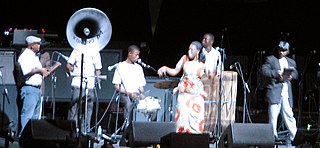
Konono Nº1 is a musical group from Kinshasa, Democratic Republic of the Congo. They are known for their DIY aesthetic, combining electric likembé with vocals, dancers, and percussion instruments that are made out of items salvaged from a junkyard. The group's amplification equipment is equally rudimentary, including a microphone carved out of wood fitted with a magnet from an automobile alternator and a gigantic horn-shaped amplifier. The genre of the band's music has been characterized as difficult to classify; the group themselves have classified their music under the labels of "tradi-modern" and "Congotronics".

Congotronics is the official debut album by Konono Nº1. It was released in 2004. by Crammed Discs. It has won the band massive favour in the dance and alternative rock scenes as well as in world music circles and in the North American and European media.

fRoots was a specialist music magazine published in the UK between 1979 and 2019. It specialised in folk and world music, and featured regular compilation downloadable albums, with occasional specials. In 2006, the circulation of the magazine was 12,000 worldwide.
General elections were held in the Democratic Republic of the Congo on July 30, 2006. They were the first multiparty elections in the country in 41 years, and the first since the overthrow of longtime leader Mobutu Sese Seko nine years earlier. Voters went to the polls to elect both a new President of the Republic and a new National Assembly, the lower-house of the Parliament.
Marc Hollander is a Belgian musician, producer and creator of the independent record label, Crammed Discs.
Vincent Kenis is a Belgian musician and record producer. He was a member of the avant-garde group Aksak Maboul and of The Honeymoon Killers, an experimental rock band. As a musician, he also collaborated with Congolese artists such as OK Jazz's Franco Luambo Makiadi and Papa Wemba.
Kasai Allstars are a 25-piece musical collective based in Kinshasa, Democratic Republic of the Congo. The musicians originally come from the Kasai region, but originating from five different ethnic groups: the Songye, Lulua, Tetela, Luba, and Luntu. Some of these groups have endured conflicting relationships over the centuries, and they each have their own culture, their own language, and their own musical traditions. These were always thought to be incompatible until the musicians decided to pool their resources and form a collective at the instigation of Belgian producer Vincent Kenis.
The Dongo conflict was a minor conflict centered in the town of Dongo, on the left bank of the Ubangi River in Sud-Ubangi District, Democratic Republic of the Congo. Violence initially broke out in late October 2009 after a local dispute over fishing rights. This destabilised the region and led to a spiral of violence, and an exodus of civilians attempting to flee from the fighting. By December 2009, this conflict was one of the biggest conflicts of the United Nations Mission in the Democratic Republic of Congo (MONUC) and the United Nations; more than 168,000 people had fled their homes, many of them crossing into the neighbouring Republic of the Congo. An intervention by the Congolese army and MONUC brought the conflict to an end by 13 December 2009.
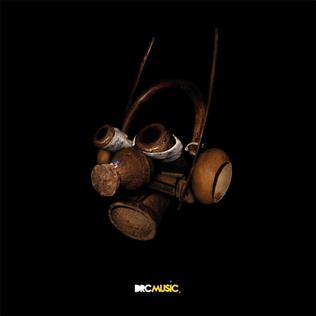
Kinshasa One Two is an album recorded by Damon Albarn alongside ten producers of the newly established DRC Music group, to benefit Oxfam's work in Congo.

Benda Bilili! is a 2010 documentary by Renaud Barret and Florent de La Tullaye, produced by Yves Chanvillard and Nadim Cheikhrouha (Screenrunner).
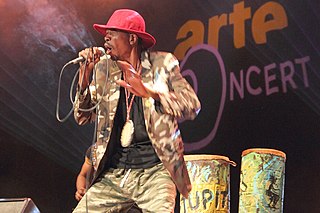
Jupiter Bokondji is a musician from Kinshasa, Democratic Republic of Congo (DRC). He and his band, Okwess International, released their first album, Hotel Univers, in May 2013 in the United Kingdom. The band was created in 1990, and they toured the African continent. However, at the same time that their popularity grew, a civil war broke out in the Democratic Republic of Congo. Some band members fled to Europe to escape violence, but Bokondji stayed in Kinshasa. As the war died down, his popularity grew again, and in 2006 he was featured in the documentary Jupiter's Dance. This brought him to the attention of UK producers and musicians, which led to him joining the African Express tour, the production of Hotel Univers, and performing at the 2013 Glastonbury Festival.
The Land Forces, also called the Congolese Army, are the land warfare component and the largest branch of the Armed Forces of the Democratic Republic of the Congo (FARDC).

From Kinshasa is the debut studio album by Congolese band Mbongwana Star, released on May 19, 2015 on World Circuit.
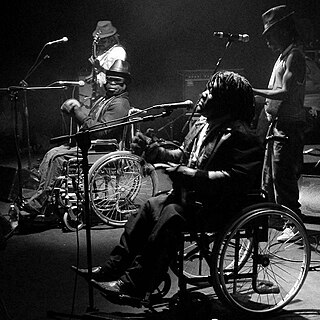
Mbongwana Star is a band from Kinshasa, Congo. Of the seven members of the band, two of them were among the founding members of Staff Benda Bilili.

Wenge Musica were a Congolese soukous band. It was formed by Didier Masela in July 1981 and directed by JB Mpiana from 1986 to the breakup of the group in 1997. The band is considered one of the most dominant on the Congolese scene.



